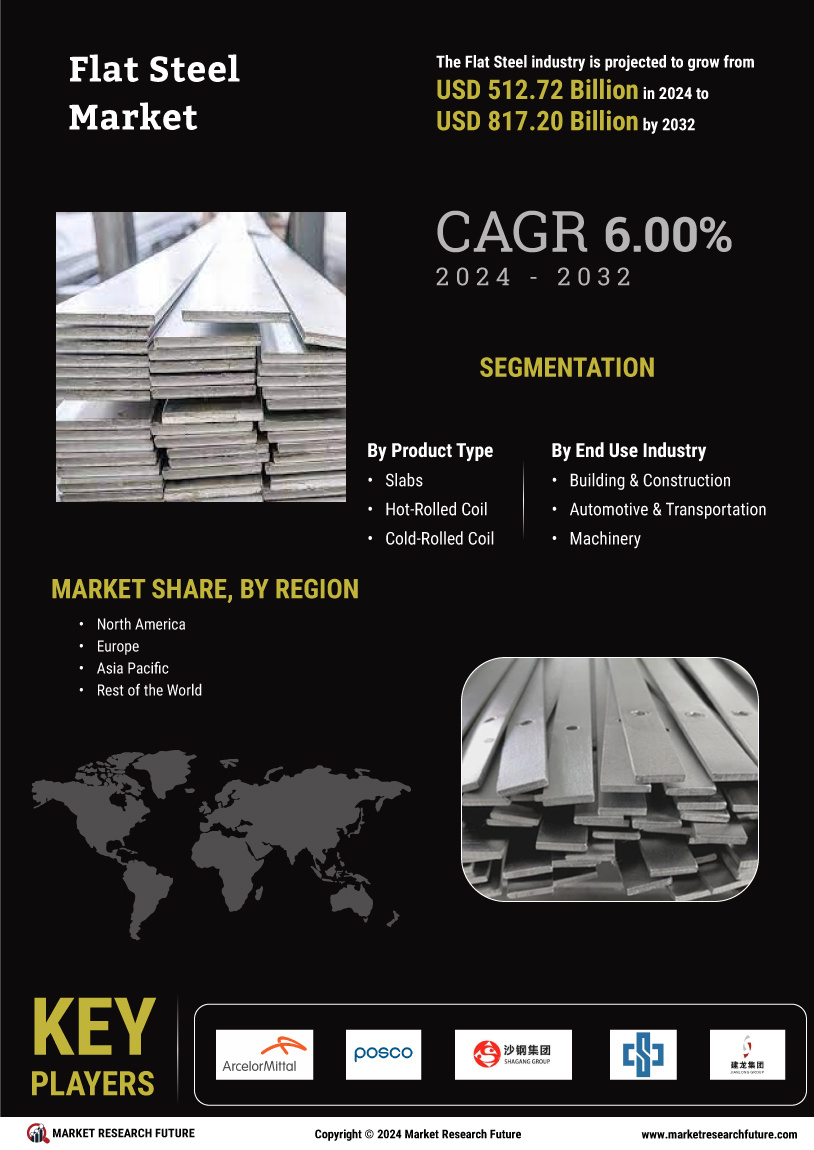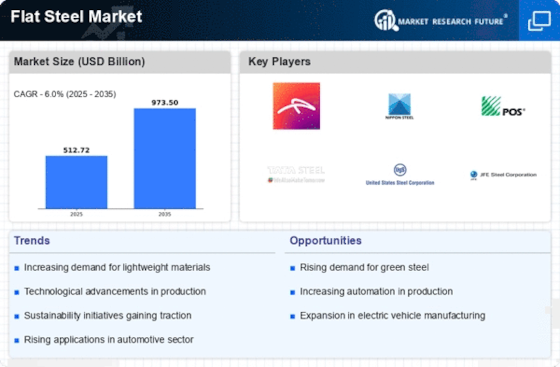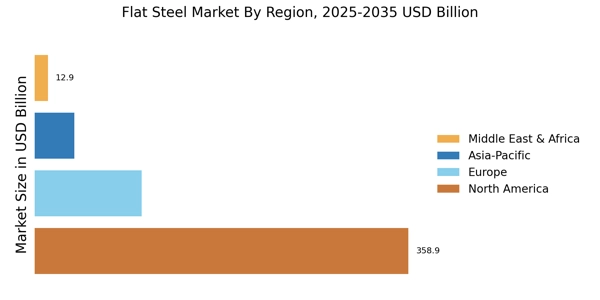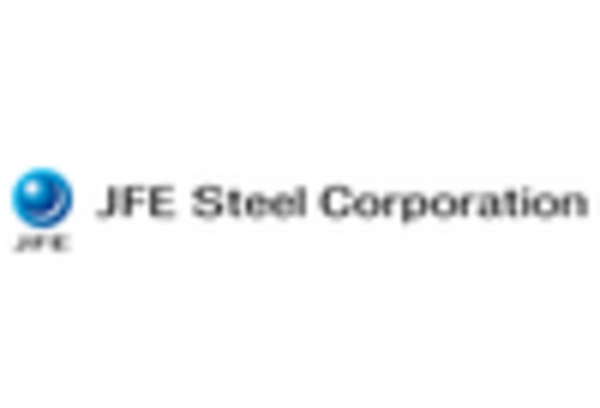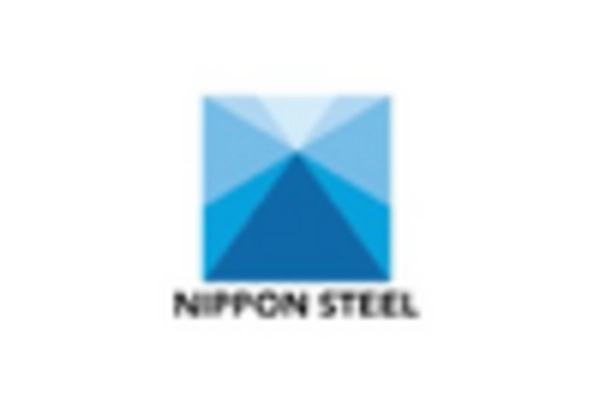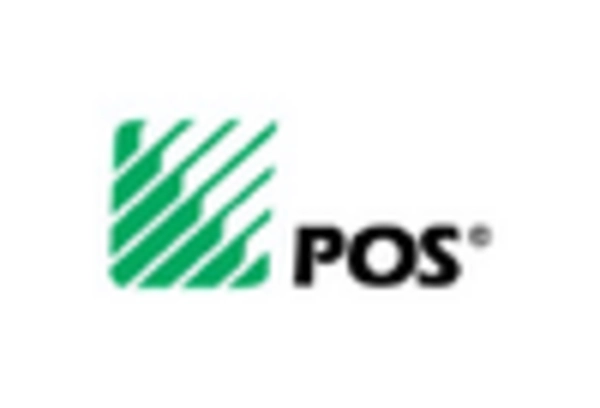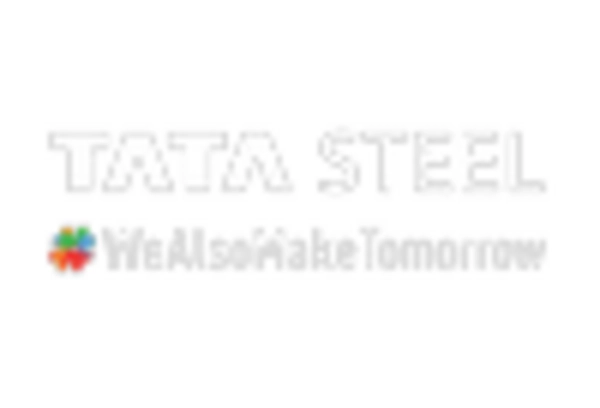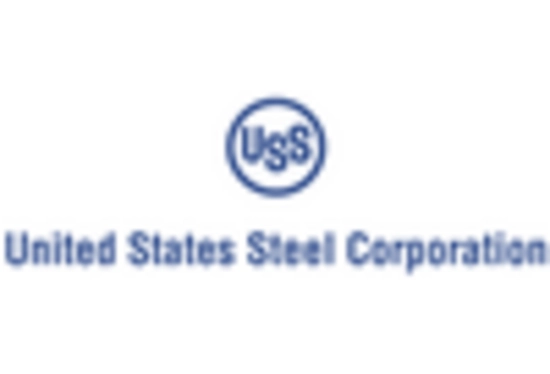Automotive Sector Growth
The automotive industry is undergoing a transformation, with a notable shift towards electric vehicles and lightweight materials. This evolution is likely to bolster the Flat Steel Market, as manufacturers seek to reduce vehicle weight while maintaining structural integrity. Flat steel is increasingly utilized in the production of automotive components, contributing to enhanced fuel efficiency and performance. Recent data suggests that the automotive sector accounts for nearly 30% of flat steel consumption, indicating a significant market share. As the demand for electric vehicles rises, the Flat Steel Market may experience further growth, driven by the need for advanced materials that meet stringent safety and environmental standards.
Infrastructure Development
The ongoing expansion of infrastructure projects across various regions appears to be a primary driver for the Flat Steel Market. Governments are increasingly investing in transportation networks, bridges, and urban development, which necessitates a substantial amount of flat steel products. For instance, the demand for flat steel in construction is projected to grow at a compound annual growth rate of approximately 4.5% over the next five years. This trend indicates a robust market for flat steel, as it is essential for structural applications. Furthermore, the Flat Steel Market benefits from the rising need for durable and high-quality materials in infrastructure, which aligns with the increasing focus on safety and longevity in construction practices.
Trade Policies and Tariffs
Trade policies and tariffs are influencing the dynamics of the Flat Steel Market. Changes in international trade agreements and the imposition of tariffs can significantly impact the availability and pricing of flat steel products. For instance, recent trade tensions have led to fluctuations in steel prices, affecting manufacturers and consumers alike. The Flat Steel Market must navigate these complexities, as tariffs can either protect domestic producers or lead to increased costs for end-users. Additionally, the evolving landscape of trade policies may create opportunities for new market entrants, potentially reshaping competitive dynamics. Understanding these factors is crucial for stakeholders in the Flat Steel Market to adapt and thrive.
Rising Demand from the Energy Sector
The energy sector, particularly renewable energy, is emerging as a significant driver for the Flat Steel Market. The construction of wind turbines, solar panels, and other renewable energy infrastructure requires substantial quantities of flat steel. As countries commit to reducing carbon emissions and transitioning to sustainable energy sources, the demand for flat steel in this sector is expected to rise. Recent estimates indicate that the renewable energy market could account for over 20% of flat steel consumption by 2030. This trend suggests a promising outlook for the Flat Steel Market, as it aligns with global efforts to promote clean energy solutions and reduce reliance on fossil fuels.
Technological Innovations in Manufacturing
Technological advancements in manufacturing processes are reshaping the Flat Steel Market. Innovations such as automation, artificial intelligence, and advanced metallurgy are enhancing production efficiency and product quality. These developments enable manufacturers to produce flat steel with superior properties, catering to diverse applications across various sectors. For example, the introduction of high-strength steel grades is likely to meet the increasing demand for lightweight and durable materials. Additionally, the Flat Steel Market is witnessing a shift towards more sustainable manufacturing practices, which could further attract investment and drive growth. The integration of smart technologies in production lines may also lead to cost reductions and improved competitiveness.
